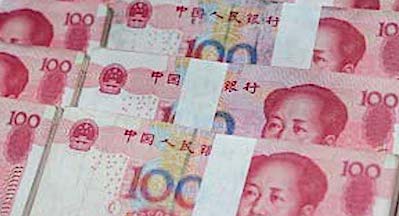By Mark McSherry
The Abrdn China Investment Company reported that its net asset value (NAV) total return was -37.0% in the year to October 31, 2022, underperforming the MSCI China All Shares Index, which returned -31.5%.
The ordinary share price total return was -35.5%, as the discount to NAV at which the company’s shares trade narrowed to 12.5% from 14.5% at the start of the financial year.
Assets in the trust plummeted to £231.8 million during the year from £373.8 million.
The fund seeks long-term capital growth by investing predominantly in Chinese equities
Nicholas Yeo and Elizabeth Kwik, managers of the fund, wrote: “In terms of broad headwinds for the portfolio, it was a year when macroeconomic and geopolitical concerns trumped bottom-up stock fundamentals.
“The many positive developments at the individual company level within the portfolio were often largely ignored by investors who were more concerned about bigger economic themes or threats.
“A rotation in investment style factors, which saw value stocks favoured over growth stocks, also posed a challenge.
“The company’s NAV underperformance during the financial year was largely driven by stock selection.
“Sector allocation effects were broadly neutral, although the portfolio’s lack of exposure to the strong-performing energy sector was a detractor to performance.
“We find few quality stocks in a sector dominated by state-owned enterprises that we do not view as long-term structural winners. We own many renewable energy-related companies in the portfolio, but these are classified within the industrials sector.
“Stock picking within financials accounted for almost half of overall underperformance, with banks being a particular area of weakness.
“Stock selection was also negative in the healthcare, and materials sectors, although our stock choices in information technology and consumer staples contributed positively to overall returns.
“China Merchants Bank (CMB) was the portfolio’s worst performing stock which suffered due to its property exposure, soft consumer confidence and an unexpected change in senior management.
“In the consumer discretionary sector, China MeiDong Auto, a vehicle dealer, struggled against a backdrop of subdued global demand for high-end cars.
“Elsewhere, CIFI Ever Sunshine, a property management company, was affected by the broader weakness in the property sector. We exited the stock during the financial year.
“On a brighter note, Proya Cosmetics was a strong contributor to performance. It grew its business over the financial year, navigating lockdown effects and expanding in cities considered to be ‘lower-tier’ in the unofficial hierarchical classification of Chinese cities.
“Owning medical equipment-maker Shenzhen Mindray was also helpful. China’s difficulties in dealing with the Covid-19 pandemic have highlighted the need to invest in domestic healthcare.
“Shenzhen Mindray also benefited from expectations of easing Covid-19 restrictions. Lastly, China Tourism Group Duty Free, the travel retailer, recovered in line with the easing of the burdensome international travel requirements in China.”
On portfolio activity, the managers wrote: “We initiated a position in Inner Mongolia Yili, the dairy products producer, for its defensive fundamental characteristics.
“We also established a holding in Anhui Conch Cement, the largest cement manufacturer in China, to increase the portfolio’s exposure to infrastructure.
“In August, we participated in the Hong Kong IPO of China Tourism Group Duty Free. Its shares were listed at an attractive discount and we believe the company’s long-term outlook is positive.
“Elsewhere, we continued to increase our position in Aier Eye Hospital Group, the provider of ophthalmology medical services, to reflect our preference for medical services companies within the healthcare sector.
“We exited China Conch Venture, the construction engineering company, and its spin-off entity, China Conch Environment Protection, companies principally engaged in the provision of environmental protection services due to worsening competition dynamics and concern over the companies’ funding capability.
“In September, we sold out of our position in surgical robot company Shanghai Microport Medbot due to increased regulatory risks that did not align with our original expectations.”
